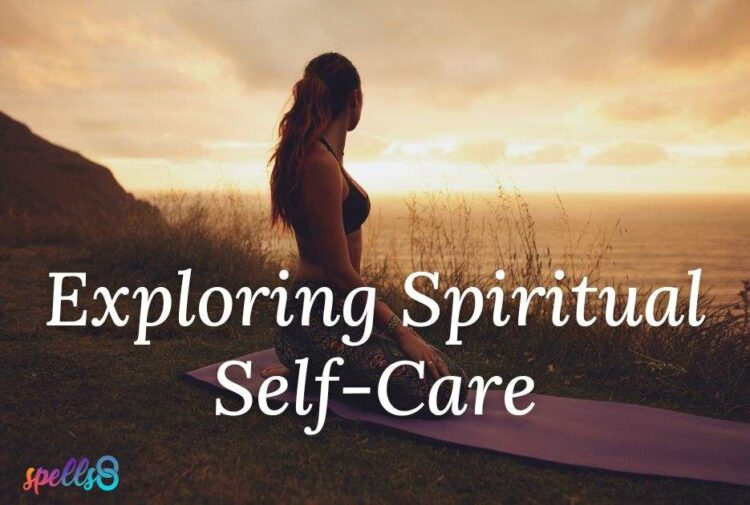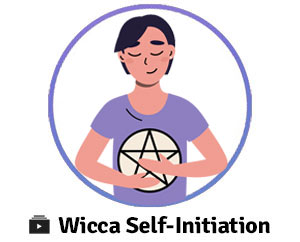Spiritual self-care is the intentional practice of nurturing and nourishing the innermost dimensions of our being—the spirit or soul. It encompasses many activities and practices to foster a sense of connection, meaning, and purpose in life. Spiritual self-care plays a vital role in maintaining overall well-being and finding balance amidst the demands of daily life.
While physical and mental health are undoubtedly important, spiritual well-being addresses the more profound existential questions. It seeks to cultivate inner peace, fulfillment, and alignment with one’s true self. By prioritizing spiritual self-care, you can tap into a source of strength, resilience, and wisdom that transcends life’s challenges and uncertainties, ultimately leading to a more meaningful and fulfilling existence.

What is Spiritual Self Care?
By incorporating spiritual self-care activities into your daily life, you are creating a relationship with your higher self, the part of you that is untouched by ego, fear, and limiting beliefs. This type of self-care can take many forms, from traditional religious practices to more secular and personal expressions of spirituality. Some key components of spiritual self-care are:
1. Connection to Something Greater
Spiritual self-care often involves a sense of connection to a higher power, divine energy, or universal consciousness. This connection can be explored through prayer, meditation, contemplation, or rituals that honor and acknowledge the sacredness of life.
2. Inner Exploration
Exploring your inner world, including beliefs, values, emotions, and desires, with practices such as journaling, introspection, and therapy can help individuals deepen their self-awareness and understand their spiritual needs and aspirations.
See also: The Inner Temple for Casting Spells without Tools
3. Meaning-Making
Spiritual self-care involves seeking and creating meaning in life, especially in the face of challenges, suffering, and existential questions. It can involve reflecting on your purpose, values, and beliefs and finding inspiration and guidance from spiritual teachings, traditions, and philosophies.
4. Gratitude and Presence
With an emphasis on gratitude, mindfulness, and presence, spiritual self-care cultivates appreciation for the present moment and all that life has to offer. Practices such as gratitude journaling, mindfulness meditation, and spending time in nature can help you develop a deeper sense of connection and contentment.

5. Compassion and Service
Cultivating qualities such as compassion, empathy, forgiveness, and love for yourself and others and engaging in acts of kindness, service, and altruism can foster a sense of connection to others and contribute to the well-being of the broader community.
6. Sacred Practices
For many people, spiritual self-care involves engaging in meaningful and symbolic sacred practices and rituals. These may include attending religious services, participating in traditions such as prayer, meditation, or yoga, and celebrating holidays and milestones that hold personal or cultural significance.
7. Connection to Others
Spiritual self-care can also involve connecting with like-minded individuals or communities who share similar beliefs, values, and aspirations. This sense of belonging and support can provide encouragement, inspiration, and companionship on the spiritual journey.

Spiritual Self-Care Plan for Daily Nourishment
Taking care of our spiritual well-being is just as important as our physical and mental health. Nurturing our spiritual selves can bring a sense of peace, purpose, and connection to something greater than ourselves. Here are 12 spiritual self-care ideas and activities to incorporate into your daily routine for ongoing spiritual development and nourishment:
1. Morning Meditation
Start your day with a few minutes of quiet meditation. Find a comfortable spot, close your eyes, and focus on your breath. Allow any thoughts or worries to simply pass through your mind without judgment. Set an intention for the day ahead and visualize yourself moving through the day with ease and grace.
See also: Going Beyond the Veil: Guided Meditation
2. Gratitude Journaling
Take a few moments each morning or evening to jot down things you’re grateful for. Cultivating an attitude of gratitude can shift your perspective and help you focus on the abundance in your life rather than any perceived lack.

3. Nature Walks
Spend time outdoors connecting with nature. Take a leisurely walk in the park, sit by a river or lake, or simply spend time in your backyard or a nearby green space. Tune in to the sights, sounds, and sensations around you, allowing nature to nourish your soul.
4. Mindful Movement
Engage in activities that allow you to be present in your body, such as yoga, tai chi, or qigong. These practices not only promote physical health but also cultivate mindfulness and inner peace.
See also: Walking Meditation for Restless Energy
5. Creative Expression
Tap into your creative side as a form of self-expression and spiritual exploration. Whether it’s painting, writing, dancing, or playing music, allow yourself the freedom to express your emotions and connect with your inner wisdom.

6. Silent Reflection
Set aside time each day for silent reflection and introspection. This could be as simple as sitting quietly with a cup of tea, journaling your thoughts and feelings, or simply spending a few moments in silent contemplation.
7. Acts of Kindness
Practice random acts of kindness as a way of spreading love and positivity in the world. Whether it’s offering a helping hand to a stranger, sending a thoughtful message to a friend, or volunteering your time for a cause you believe in, small gestures of kindness can have a big impact on both others and you.
8. Mindful Eating
Approach mealtimes with mindfulness and gratitude. Take the time to savor each bite, noticing the flavors, textures, and sensations of the food. Eat slowly and with intention, appreciating the nourishment that it provides for your body and soul.
9. Digital Detox
Disconnect from technology for a period each day to create space for inner stillness and reflection. Turn off your phone, computer, and other electronic devices. Instead, engage in activities that promote relaxation and connection, such as reading, listening to music, or spending time with loved ones.

10. Spiritual Reading
Incorporate spiritual literature into your daily routine to inspire and uplift your soul. Whether it’s sacred texts, spiritual poetry, or self-help books, find material that resonates with you and offers insights into your spiritual journey.
See also: Sacred Books: BoS, Grimoire, Journals – Join the Challenge!
11. Gratitude Rituals
Create simple rituals around gratitude to infuse your daily life with a sense of appreciation and wonder. This could be as simple as saying a prayer of thanks before meals, keeping a gratitude rock in your pocket to remind you of the blessings in your life, or lighting a candle as a symbol of gratitude before bed.
12. Evening Reflection
Wind down your day with a few moments of reflection before bed. Review the events of the day with compassion and curiosity, acknowledging both the challenges and blessings that came your way. Settle into a state of gratitude and peace as you prepare for a restful night’s sleep.
See also: Session 7: Simple Evening Routine
Incorporating these spiritual self-care practices into your daily routine can help you cultivate a deeper sense of connection, purpose, and inner peace. Remember that spiritual growth is a journey, not a destination, so be patient and gentle with yourself as you explore these practices and discover what resonates most deeply with your soul. Nurturing your spiritual well-being daily can create a foundation for a more fulfilling and meaningful life.
Conclusion
Overall, spiritual self-care is about nurturing the most profound aspects of ourselves and creating space for growth, healing, and transformation. It is a deeply personal and individualized process that honors each person’s unique spiritual path while also recognizing our interconnectedness with all of existence.






